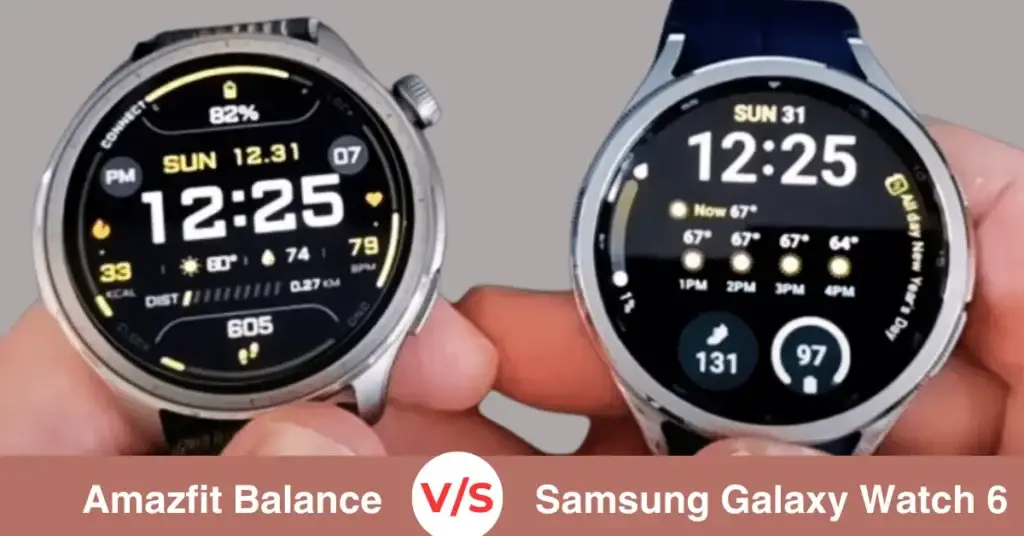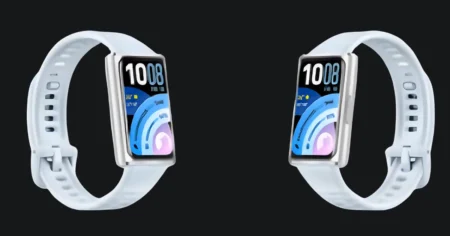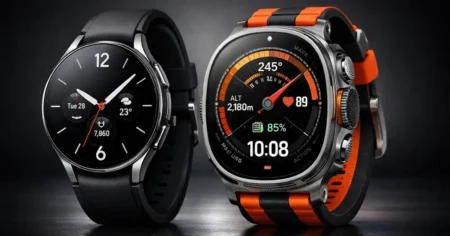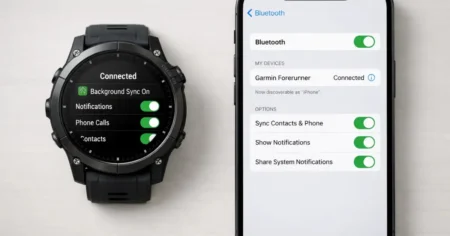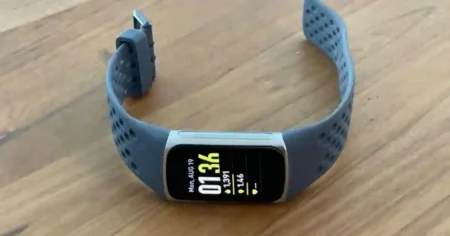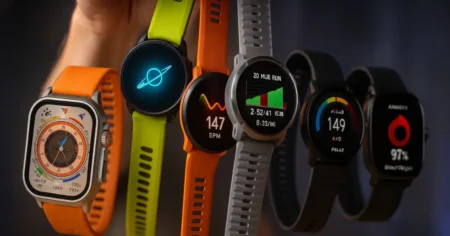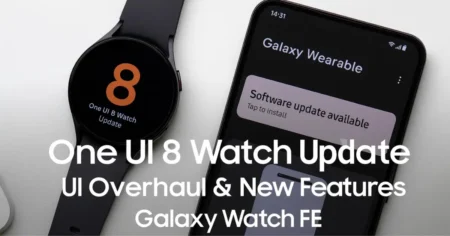Struggling to pick between the Amazfit Balance and Samsung Galaxy Watch 6 Classic for your fitness tracker? This guide will help! Both are great options, but we’ll break them down into easy-to-understand categories to find your perfect match.
If you’re short on time, you can directly go to the comparison table.
For this comparison, we’ll focus on the Samsung Galaxy Watch 6 Classic (47mm) because its screen size is similar to the Amazfit Balance.
Our analysis commences with an evaluation of Build Quality, Health Features, and Price Point or other crucial factors for any wearable device.
Let’s jump in and see how they stack up, starting with how they’re built!
Amazfit Balance vs Samsung Galaxy Watch 6 Spec
Here’s a quick comparison of key specifications between the Amazfit Balance vs Samsung Galaxy Watch 6.
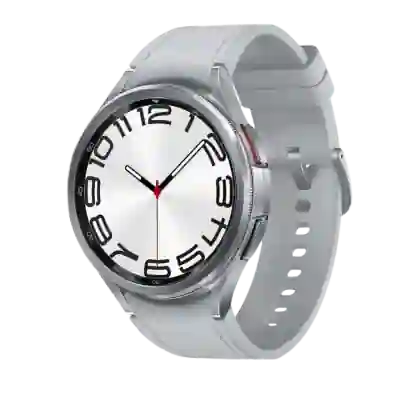 | 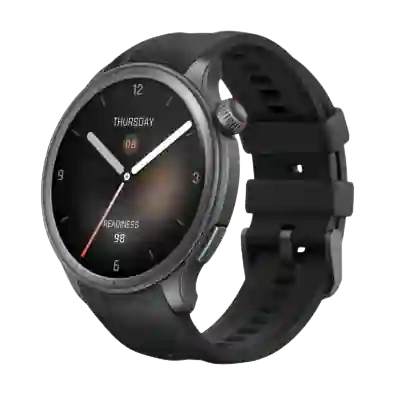 | |
|---|---|---|
| Feature | Galaxy Watch 6 | Amazfit Balance |
| Star Rating | 4.5 Out of 5 | 4.3 Out of 5 |
| NFC | Yes | Yes |
| Bluetooth Version | Bluetooth v5.3 | Bluetooth v5.3 |
| Size (Main Display) | 1.5″ (37.3mm) | 1.5″ |
| Processor | 1.4GHz | 1.4GHz |
| Storage (GB) | 16 | 16 |
| Sensors | Accelerometer, Barometer, Bioelectrical Impedance Analysis Sensor, Electrical Heart Sensor, Gyro Sensor, Geomagnetic Sensor, Hall Sensor, Infrared Temperature Sensor, Light Sensor, Optical Heart Rate Sensor | Accelerometer, Barometer, Bioelectrical Impedance Analysis Sensor, Electrical Heart Sensor, Gyroscope, Geomagnetic Sensor, Air pressure sensor, Ambient light sensor, Temperature sensor |
| Location Technology | GPS, Glonass, Beidou, Galileo | GPS, Glonass, Beidou, Galileo |
| Wi-Fi | 802.11 a/b/g/n 2.4+5GHz | 802.11 a/b/g/n 2.4GHz, Bluetooth 5.0 |
| Bluetooth Profiles | A2DP, AVRCP, HFP, HSP | A2DP, AVRCP, HFP, HSP |
| Operating System | Wear OS Powered by Samsung | Zap OS |
| Display Technology (Main Display) | Super AMOLED | AMOLED |
| Display Resolution (Main Display) | 480 x 480 | 480 x 480 |
| Color Depth (Main Display) | 16M | 16M |
| Dimensions (HxWxD) | 46.5 x 46.5 x 10.9 mm | 46x46x10.6mm |
| Weight | 59.0 g | 35g (without strap) |
| Battery Capacity (mAh, Typical) | 425 | 475 (rated value) |
| Usage Time (AOD On) | Up to 30 Hours | Up to 14 days |
| Price (Amazon) | Check Price | Check Price |
Read Review:-
Design and Build Quality
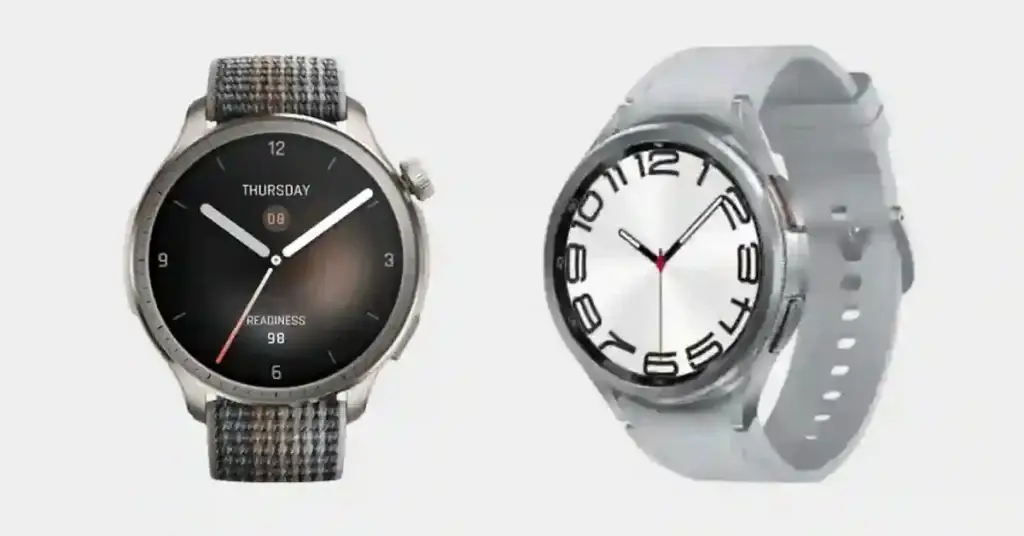
It is build quality, so we’ll start with the Balance over here. This is made of an aluminum alloy middle frame. Then, it has a fiber-reinforced polymer back here, with a microphone and speakers. It feels very premium, well-made, and light at 35g without the strap.
The Watch 6 Classic is made out of stainless steel, feels very premium, and is well-built. It’s heavier at 59g without the strap. Most of them are made out of tempered glass, so I always recommend getting a screen protector.
The Watch 6 has sapphire glass, which is very durable. Both are waterproof to five atmospheres, but the Galaxy Watch 6 has military-grade durability.
The Balance comes in one size but six different colors. The Watch 6 comes in regular and classic, with different sizes and colors. Both support nonproprietary watch bands.
For build quality, I gave the win to Samsung because of the sapphire glass, stainless steel, and military-grade durability.
Next is rotating crowns. Both watches have rotating crowns, making navigation easy. The Amazfit Balance has a smooth rotator, while the Watch 6 has a classic rotating bezel.
Overall, both watches have their strengths, with the Amazfit Balance excelling in affordability.
At the same time, the Samsung Galaxy Watch 6 Classic offers premium build quality and features at a higher price point.
Amazfit Balance vs Galaxy Watch 6 Display
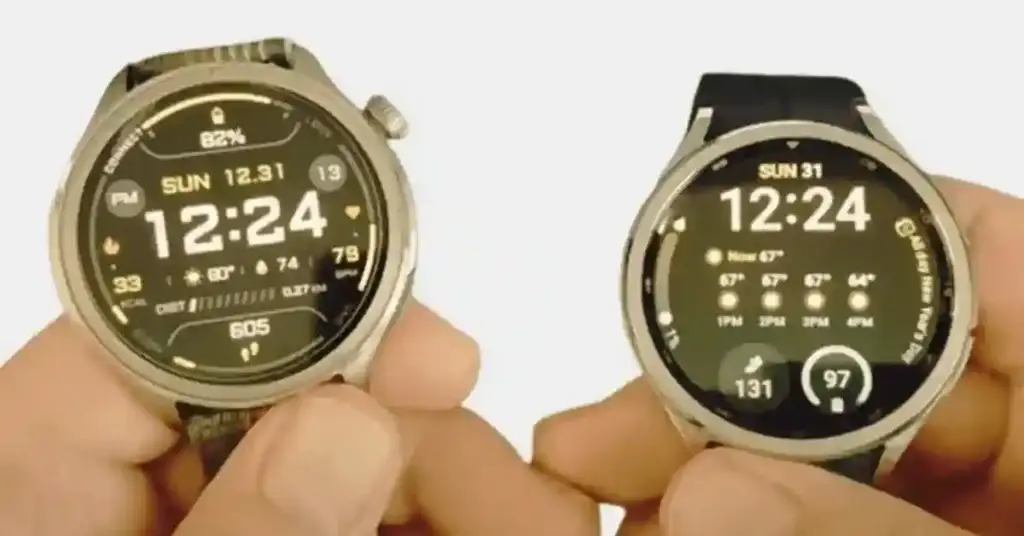
| Feature | Amazfit Balance | Galaxy Watch 6 Classic |
|---|---|---|
| Display Type | AMOLED | OLED/AMOLED |
| Resolution | 480 x 480 pixels | 480 x 480 pixels |
| Screen Size | 1.5 inches | 47mm: 1.5 inches |
| Peak Brightness | 1500 nits | 2000 nits |
| Bezel | Standard | Standard |
| Design | Enlarged HD AMOLED display with high resolution | Features a bright screen and usable watch faces |
Another big feature that we need to discuss is the display. Both have a 1.5-inch AMOLED display with a resolution of 480 x 480. Both look very sharp, with detailed small print.
A big difference is the brightness. The Amazfit Balance reaches 1500 nits, while the Samsung Watch 6 goes up to 2000 nits. This difference is noticeable in direct sunlight.
Outside in direct sunlight, the Amazfit Balance is still visible. Still, the Watch 6 is a little brighter and easier to see.
Both watches have small bezels, and the displays are great on both. For this category, I gave it a tie.
Health and Fitness Tracking
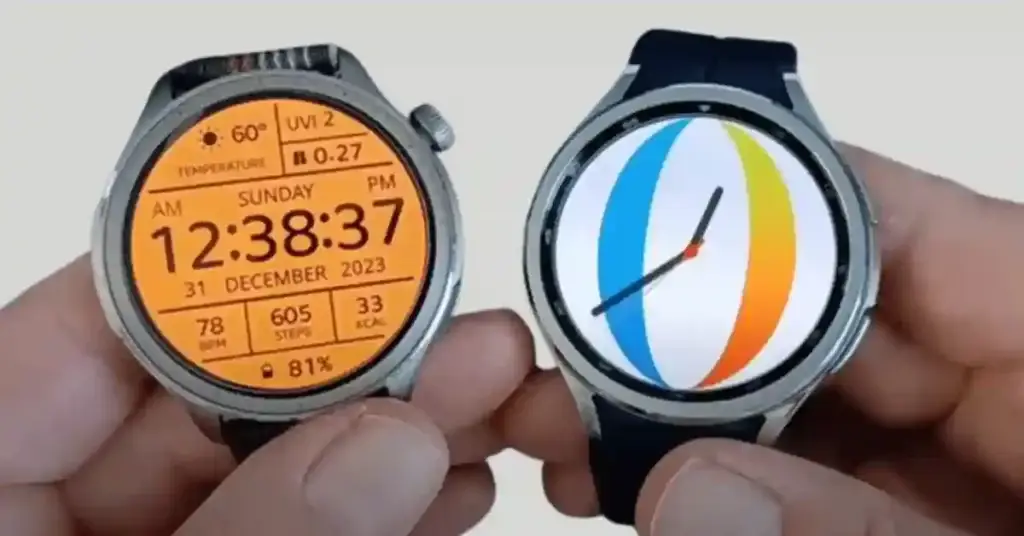
| Feature | Amazfit Balance | Galaxy Watch 6 Classic |
|---|---|---|
| Heart Rate Monitoring | Yes | Yes |
| Blood Oxygen Monitor | Yes | Yes |
| Sleep Tracking | Yes | Yes |
| Stress Monitoring | Yes | Yes |
| Activity Tracking | Yes | Yes |
| Sports Modes | 156 | 90+ |
| GPS | Yes | Yes |
| Water Resistance | 5 ATM | 5 ATM |
| ECG | No | Yes |
| Voice Assistant | Amazon Alexa | Bixby |
Both the Samsung and Amazfit Balance have GPS, heart rate monitor, SP2 stress monitoring, accelerometer, barometer, compass, and gyroscope sensors.
I have compared the data from wearing both of them for several days, and they are very similar, with heart rates, SP2, and GPS being consistent during bike rides.
Thus, there will be no issues, and I gave both a tie in this category. In the premium sensors category, Samsung has body composition and thermometer features, while Amazfit Balance added these features this year.
I have compared both and found that they are consistent with each other. The body composition feature gives you information about water mass, BMI, basal metabolism, skeletal muscle weight, fat measurement, and more.
Samsung also has an SOS feature that comes with fall detection, which can notify emergency services or your emergency contact. Samsung also allows you to monitor for atrial fibrillation and manually check your ECG and blood pressure.
The winner in this category is Samsung. Both the Samsung and Amazfit Balance track REM, deep sleep, light sleep, awake times, and naps.
I have compared the sleep data from both for several nights and found that they are very close to each other. The Amazfit Balance also has breathing detection and offers manual breathing detection as well.
The Samsung Watch 6 has snore detection, making it heavier than the Balance. However, I found both to be comfortable to wear, and I gave both a tie in this category.
The Amazfit Balance auto-detects eight workouts, while Samsung auto-detects three. The Amazfit Balance has 150 sports modes, while Samsung only has 100.
Both data screens are customizable, and you can change the layout and data points and add more data if you want. I found both to be very customizable.
Watch faces
Watch faces are an important feature of smartwatches. The Amazfit Balance has about 200 watch faces available, but they can only be accessed through the Zep app. Half of them are free, and the other half costs a dollar or two.
However, the interaction with them is not as good as on the Samsung Watch 6. The Amazfit Balance watch face has a few convenient shortcuts. For example, tapping on the steps information takes you to the steps page, and clicking on the heart rate takes you to the heart rate page.
Unfortunately, not many watch faces on the Amazfit Balance have this feature. Also, there’s not a lot of customization available on the complications. You can’t change the battery icon’s location, for instance.
On the Watch 6, you can access all the watch faces on Samsung’s app and download additional ones from the Google Play Store. They are more customizable than the ones on the Amazfit Balance. You can change the colors, the clock face, and the complications on most of them.
Additionally, you can access shortcuts on the Watch 6. If you want to check the battery, for example, it takes you directly to the battery page. The Watch 6 wins in the watch face category.
Software Support and Updates
In terms of software support and updates, Amazfit controls the entire ecosystem, from the phone app to the downloads. They release software updates regularly, and they also bring new features to older watches.
However, they don’t provide any guarantees. Samsung, on the other hand, guarantees four years of updates on the Wear OS and one year of security updates. They update the software regularly, and they offer a guarantee. Therefore, Samsung wins in the software update category.
As for the phone app category, both the Amazfit Balance and the Watch 6 have a mic and a speaker. They function well, and I was able to carry on conversations with both of them. However, the Watch 6 has an LTE version that the Balance doesn’t offer. Therefore, this category is a tie.
The text feature category is where the Amazfit Balance loses out slightly. You can only respond to texts using pre-made texts that you created. Although you can make as many as you want and edit them, this is a limitation.
On the other hand, the Watch 6 has more advanced text features. You can reply to texts using your voice, and you can also type with a keyboard. The Watch 6 wins in the text feature category.
Amazfit Balance vs Galaxy Watch 6 Battery Life
| Watch Model | Amazfit Balance | Samsung Galaxy Watch6 Classic 47mm |
| Battery Capacity | 475mAh | 425mAh |
| Battery Life | Up to 14 days | Up to 40 hours |
| Charging Time | 2 hours | 45% in 30 minutes |
The battery life of a smartwatch is a crucial factor for many users, as it determines how often the device needs to be recharged and how long it can be used on a single charge.
In this regard, both the Amazfit Balance and Samsung Galaxy Watch 6 Classic offer impressive battery life that ensures uninterrupted usage throughout the day and beyond.
The Amazfit Balance stands out with its long-lasting battery life, boasting up to 14 days of typical use and up to 25 days in battery saver mode. This extended battery life is made possible by the watch’s efficient power management system, which optimizes energy consumption to minimize the need for frequent recharging.
Whether you’re tracking workouts, monitoring sleep, or receiving notifications, you can rely on the Amazfit Balance to keep up with your active lifestyle without constantly worrying about running out of battery.
Similarly, the Samsung Galaxy Watch 6 Classic delivers reliable battery life that meets the needs of most users, offering several days of usage on a single charge.
While not quite as long-lasting as the Amazfit Balance, the Galaxy Watch 6 Classic’s battery life is still impressive, considering its advanced features and functionalities.
Whether you’re tracking fitness metrics, monitoring sleep, or using apps, you can count on the Galaxy Watch 6 Classic to provide consistent performance throughout the day without needing to recharge frequently.
Ultimately, the choice between the Amazfit Balance and Samsung Galaxy Watch 6 Classic comes down to personal preference and usage habits. Suppose you prioritize long battery life and don’t want to worry about frequent recharging.
In that case, the Amazfit Balance may be the better option for you. On the other hand, if you’re willing to sacrifice a bit of battery life for advanced features and functionalities, the Samsung Galaxy Watch 6 Classic may be more suitable for your needs.
Whichever smartwatch you choose, you can rest assured knowing that you’ll have a reliable companion to help you stay connected, track your health and fitness, and enhance your overall lifestyle.
Amazfit Balance vs Samsung Galaxy Watch 6 Price
When it comes to purchasing a smartwatch, price and value are important factors to consider. Both the Amazfit Balance and Samsung Galaxy Watch 6 Classic offer excellent value for money, providing a range of features and functionalities at competitive price points.
The Amazfit Balance represents an attractive option for budget-conscious consumers, offering robust health tracking features and an elegant design at a competitive price point.
With its comprehensive sleep monitoring, advanced fitness tracking, and long battery life, the Amazfit Balance delivers excellent value for money, ensuring that users get the most out of their investment.
On the other hand, the Samsung Galaxy Watch 6 Classic commands a higher price tag, reflecting its premium build quality and advanced features.
While it may be a splurge for some, the Galaxy Watch 6 Classic offers a range of advanced health tracking features, seamless connectivity with other Galaxy devices, and a timeless design that justifies the investment for discerning users.
In summary, both the Amazfit Balance and Samsung Galaxy Watch 6 Classic offer excellent value for money, providing a range of features and functionalities to suit different budgets and preferences.
Whether you prioritize affordability or premium build quality, these smartwatches have you covered with a range of options to meet your needs and preferences.
Conclusion
In conclusion, both the Amazfit Balance and Samsung Galaxy Watch 6 Classic offer compelling features and functionalities that cater to different needs and preferences.
Whether you prioritize design and display, health and fitness tracking, battery life, connectivity, compatibility, or price and value, these smartwatches have you covered with a range of options to suit your lifestyle and preferences.
Ultimately, the choice between the Amazfit Balance and Samsung Galaxy Watch 6 Classic comes down to personal preference and usage habits.
Whether you prefer the traditional elegance of the Amazfit Balance or the advanced features and seamless integration of the Samsung Galaxy Watch 6 Classic, you can rest assured knowing that you’re investing in a sophisticated smartwatch that enhances your lifestyle and well-being.

Samsung Galaxy Watch 6 Classic 47mm Best Splurge


